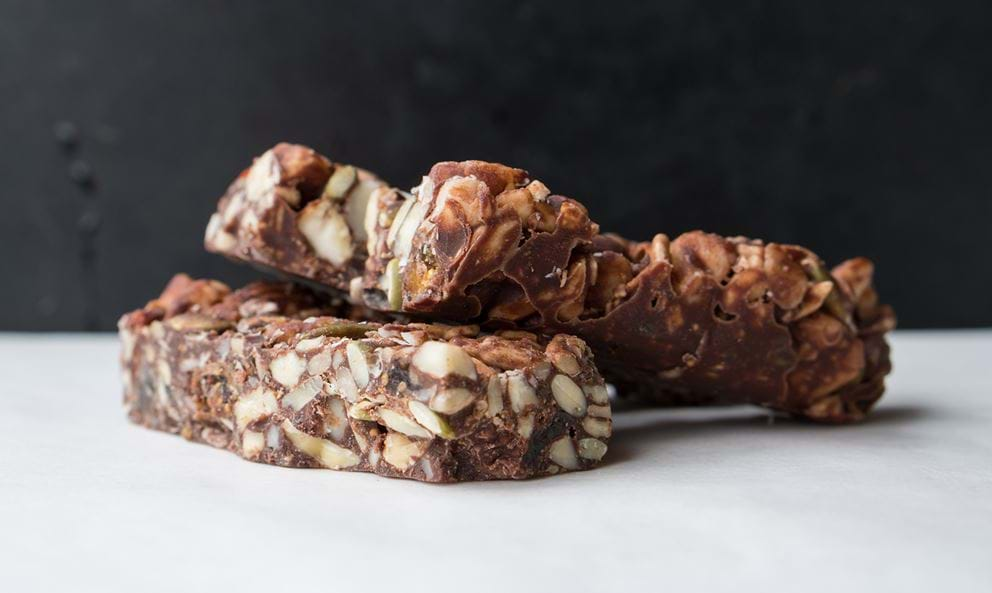Are Protein Bars Good or Bad?

Everyone knows that protein is important for building muscle and repairing the body after subjecting it to the wear and tear of exercise. While there’s some debate about just how much protein is really required for optimal recovery, health, and muscle building, most people are basically on board with a good post-workout whey protein shake.
But what about if you’re trying to supplement your protein intake with protein bars? Are you setting yourself up for doom and horror, or is it all good?
Let’s take a look.
Why Are People Sceptical of Protein Bars?
The main reason why people are sceptical of protein bars is because of the non-protein ingredients they often contain. While most brands of protein bar boast an absence of trans fats, they very often contain vegetable oils such as corn and sunflower oil, which might be seriously hazardous to health in and of themselves. Various other dubious and mysterious additives may also be included in the ingredients.
Protein bars often contain a substantial amount of sugar as well, and may include protein from sources which aren’t as well absorbed as traditional whey protein isolate powder.
Price is a further reason why some people are sceptical about protein bars, as the higher end bars, in particular, can be substantially more expensive than an equivalent amount of protein powder.
Ultimately, though, people are often put off protein bars because they just want an easy post-workout protein fix, not an overall meal replacement in a bar, including fats and carbs.
What Are the Benefits of Protein Bars?
All naysaying aside, there are a few reasons you might find protein bars to be a good addition to your supplement arsenal.
For one thing, protein bars are often easier to transport than protein shakes. That protein bar in the bottom of your rucksack is unlikely to explode and stain all your gym clothes with a coating of crusty strawberry whey.
For another thing, protein bars are a form of solid food, and may even be fortified with fibre, making them kinder on the bowels and less likely to cause frequent bathroom trips, than shakes.
A Look at Some Popular Protein Bars
While a thorough look at the ingredients list for a protein bar is always a good idea before making the purchase, macronutrient values are typically the first item of concern for fitness folks.
Here’s a look at how the macro ratios of some of the more popular protein bars on the market stack up.
Promax Lean Protein Bars - by Maximuscle
Nutritional info per bar (55g):
Calories: 184
Protein: 20g
Total Carbs: 13.5g
Sugar: 1.6g
Total Fat: 5.5g
Fibre: 7g
Reload Protein Flapjacks - by Reload
Nutritional info per bar (70g):
Calories: 291
Protein: 18.6g
Total Carbs: 30g
Sugar: 8.3g
Total Fat: 13.3g
Fibre: 7.5g
Premium Protein Flapjacks - by Bodybuilding Warehouse
*Nutritional info per bar:
Calories: 273
Protein: 18.3g
Total Carbs: 37.4g
Sugar: 2.4g
Polyols: 13g
Total Fat: 7.2g
Fibre: 3g
*Slight variance in macronutrient depending on flavour.
Protein Choc Chunky - by Myprotein
Nutritional info per bar (48.7g):
Calories: 228
Protein: 14g
Total Carbs: 5.8g
Sugar: 2.7g
Total Fat: 14g
Fibre: 11.2g
Caramel Crunch Smart Bar - by PhD
Nutritional info per bar (64g):
Calories: 238
Protein: 20g
Total Carbs: 23g
Sugar: 0.6g
Polyols: 20g
Total Fat: 11g
Fibre: 2g


